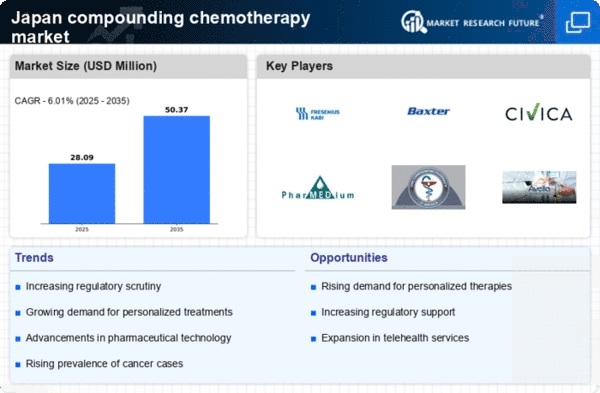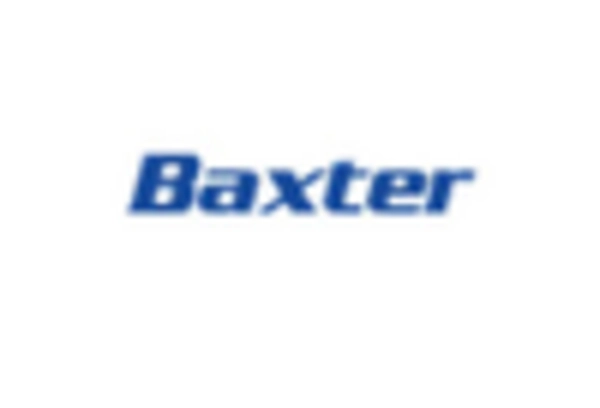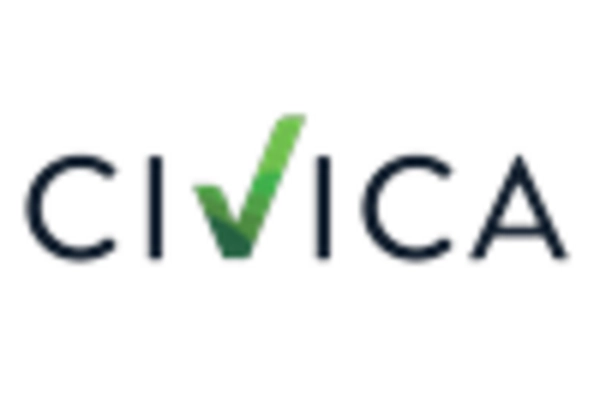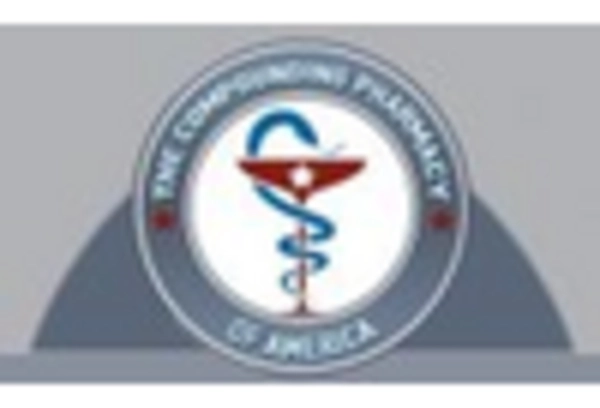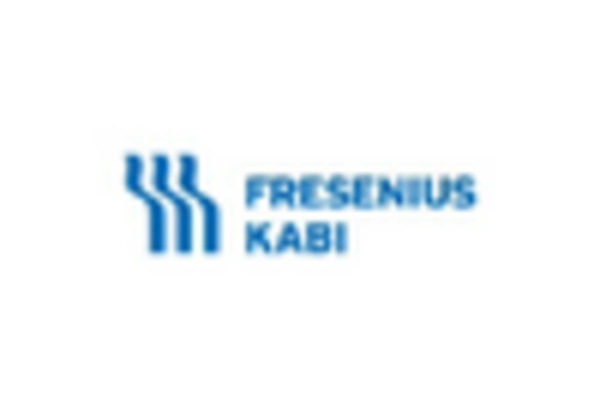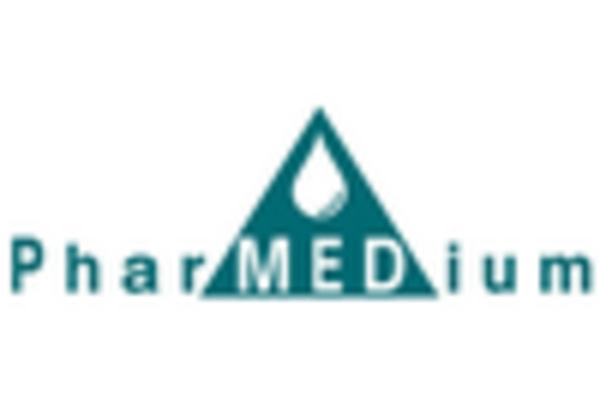Rising Cancer Incidence
The compounding chemotherapy market in Japan is experiencing growth. This growth is due to the increasing incidence of cancer. According to the latest statistics, cancer remains one of the leading causes of mortality in the country, with approximately 1 in 3 individuals diagnosed during their lifetime. This alarming trend necessitates the development of tailored chemotherapy solutions, which compounding pharmacies are well-positioned to provide. The ability to customize dosages and formulations to meet individual patient needs is becoming increasingly critical. As the population ages, the demand for personalized treatment options is likely to rise, further propelling the compounding chemotherapy market. The market is projected to expand at a CAGR of around 7% over the next five years, reflecting the urgent need for innovative and effective cancer therapies.
Increased Awareness and Education
There is a notable increase in awareness and education regarding the benefits of compounded chemotherapy in Japan. Healthcare professionals and patients alike are becoming more informed about the advantages of customized treatment options. Educational initiatives by medical associations and patient advocacy groups are playing a crucial role in disseminating information about the efficacy and safety of compounded chemotherapy. This heightened awareness is likely to lead to greater acceptance and utilization of compounded therapies among oncologists and patients. As a result, the compounding chemotherapy market is poised for growth, with projections indicating a potential increase of 5% in market size over the next few years. This trend underscores the importance of ongoing education in promoting the benefits of personalized cancer treatment.
Growing Demand for Personalized Medicine
The shift towards personalized medicine is significantly influencing the compounding chemotherapy market in Japan. Patients are increasingly seeking treatments that are tailored to their unique genetic profiles and specific cancer types. Compounding pharmacies are uniquely equipped to provide these personalized solutions, offering customized dosages and formulations that align with individual patient needs. This trend is supported by a growing body of research indicating that personalized therapies can lead to improved treatment outcomes. As healthcare providers increasingly recognize the importance of individualized treatment plans, the compounding chemotherapy market is expected to expand. Analysts predict a growth rate of around 8% over the next few years, driven by the rising demand for personalized cancer therapies.
Advancements in Pharmaceutical Technology
Technological advancements are playing a pivotal role in shaping the compounding chemotherapy market in Japan. Innovations in compounding techniques, such as automated compounding systems and advanced sterile compounding practices, enhance the safety and efficacy of chemotherapy preparations. These technologies not only streamline the compounding process but also minimize the risk of contamination, which is crucial for patient safety. Furthermore, the integration of software solutions for inventory management and prescription tracking is becoming increasingly common. As a result, compounding pharmacies can ensure timely delivery of customized chemotherapy treatments. The market is expected to witness a growth rate of approximately 6% annually, driven by these technological improvements that enhance operational efficiency and patient outcomes.
Regulatory Support for Compounding Practices
The regulatory landscape surrounding the compounding chemotherapy market in Japan is evolving. Authorities are providing clearer guidelines to ensure safety and efficacy. Recent initiatives by the Ministry of Health, Labour and Welfare aim to streamline the approval process for compounded medications, thereby encouraging pharmacies to engage in compounding practices. This regulatory support is crucial, as it fosters an environment where compounding pharmacies can innovate and respond to the specific needs of cancer patients. The market is likely to benefit from these developments, as they may lead to an increase in the number of licensed compounding pharmacies. This, in turn, could enhance competition and drive down costs, making compounded chemotherapy more accessible to patients across Japan.


